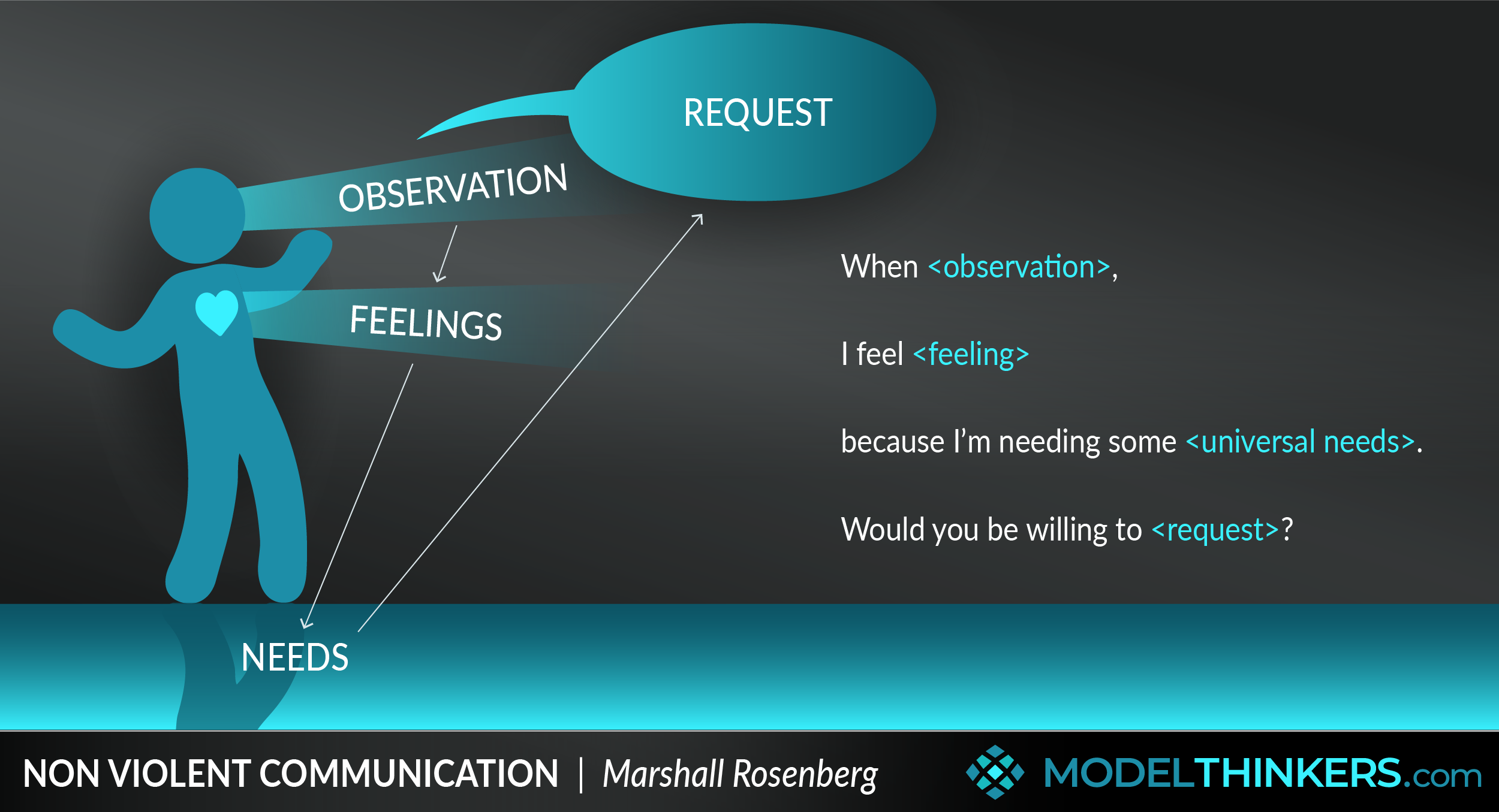
"Nonviolent Communication shows us a way of being very honest, but without any criticism, without any insults, without any putdowns, without any intellectual diagnosis implying wrongness."

The Nonviolent Communication model consists of two parts, empathy and honesty, and four components, observations, feelings, needs, and requests. When I am expressing what is alive in me using observations, feelings, needs and requests I am using honesty. When I am acknowledging verbally someone else's observations, feelings, needs and requests I am demonstrating empathy.
With NVC we do the same thing. We practice in a safe place. We find what we do in practice is what we do in live situations. So, if you practice responding compassionately, you are much more likely to be compassionate in difficult situations. The long pause at the beginning of this video is similar to the pause that you would do when giving empathy, to be sure the person is done talking. This is in my experience the hardest part of teaching NVC.
In NVC saying what we do want instead of what we don't want is
important. Have you ever noticed how some people will give you a
long list of all the things they do not like? Have you also noticed
how the same people who complain and tell you everything is awful, it's
a government conspiracy, etc., how unhappy these people are? NVC gives us a way to step back and focus our attention on what
we do want instead of what we do not
want. When I am stimulated by an event and I notice what my emotional
state
is, either good or bad, this tells me I have made an observation and
an evaluation. Often just separating out the observation from the
evaluation
gives me relief from a negative emotion (needs not met.)
You are a jerk!
Show: (Judgemental )
When you said I was a fool at the meeting , I felt annoyed and would like some respect.
Would you tell me what's going on for you ( NVC )
My son is a slob!
Show: ( Judgemental )
Today in my son's room I found 6 dirty socks, an old apple and several candy wrappers. I am disappointed as I value order and cleanliness. (No request as parent is not talking to son.) (NVC )
feel unappreciated.
Show: (Judgemental)
Last night I spent 2 hours making dinner and cleaning up afterward. No one said they enjoyed it. I feel disappointment that no one said anything. I would like some recognition and appreciation. Would you tell me if you appreciate my efforts. (NVC)
You won't listen to me! (Judgemental )
When you put your hands over your ears while I am talking, I am thinking you won't listen to me. I feel discouraged and would like to be heard. Would you be willing to look at me without putting your hands over your ears when I am talking? (NVC)
I feel disrespected. (Judgemental)
When you rolled your eyes
while I was talking at yesterday's sales meeting, I felt hurt.
I would like some respect and equality. Would you be willing to
listen without rolling your eyes or making other gestures or sounds. (NVC)
Comments
Post a Comment